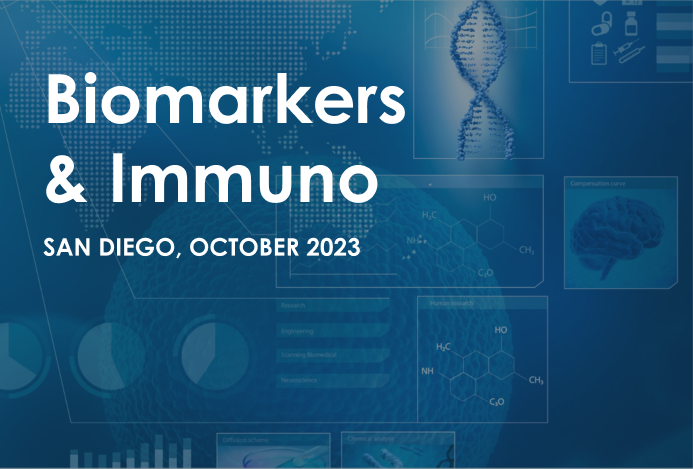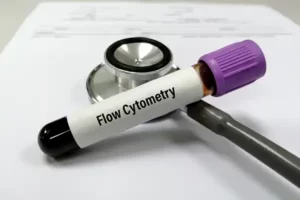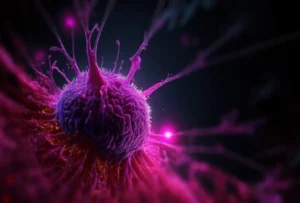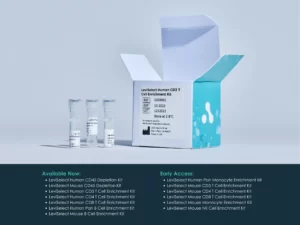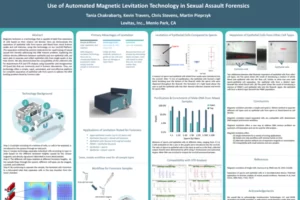Not getting caught up in the beauty of San Diego in late fall is next to impossible, but I found it to be considerably easier when presented with science that might one day save my life. Last week, Oxford Global hosted the Biomarkers and Immuno conference, bringing some of the most influential and pioneering minds in the space together to discuss recent findings and future scientific approaches. While incredibly complex in nature, the dynamic expression of biomarkers has allowed the research community to decipher and ultimately target key pathways identified in maladies such as cancer, autoimmunity and neurodegenerative diseases.
A considerable amount of time focused on existing challenges and best practices for sample acquisition and processing, highlighted by my colleague Camila Egidio, PhD, who gave an amazing talk regarding LevitasBio’s ability to transform sample challenges into research milestones. The engagement we had after this presentation was incredible, and thanks to everyone who took the time to speak with us instead of hitting the beach. Technological upgrades are clearly needed when it comes to processing archived specimens of varying quality and low cell numbers, and I appreciate being introduced to the term “freezer purgatory.” While the term was new to me, the root cause behind it isn’t. How many samples are out there in cryopreservation not being used because the quality or quantity isn’t compatible with existing processing methods? The answer is far too many.
As always, there was plenty of excitement around new and upcoming technologies for sample characterization and data analysis. Spatial analysis continues to gain momentum in the field, but the proteomic and genomic analysis of single cells from either fresh and frozen PBMCs was by far the most common workflow that I discussed with others. It was nice to see cross validation between genomic and proteomic applications for protein detection, showing that the field is truly evolving with multiple tools to detect proteins as biomarkers and potential drug targets. These new and integrative approaches have generated a lot of attention, as well as a mind-boggling amount of data. To this end, there were a number of sessions dedicated to analytical strategies that leverage artificial intelligence to process and generate predictive models for patient responses to treatment. Not exactly the impression of AI that I got from Hollywood growing up, but I will certainly take it.
With the primary focus being on human applications, multi-modality analysis for patient stratification and drug response prediction was a hot topic. There was a memorable talk by I-Ming Wang, PhD, from Pfizer, in which he showed the extensive work he did to generate single cell RNA-seq and TCR-seq data to identify prediction signatures of response to treatment. During the talk, he mentioned cost and turnaround time to be the biggest bottlenecks to generating the deep datasets. I couldn’t help but think how the LeviCellⓇ systems can improve data quality while maximizing the resources and time invested in producing single cell data. The routine application of Levitation Technology™ to each sample increases the number of single cell data points with high quality generated at the end of the workflow, ensuring that the most information from each sample is captured without the need to repeat experiments.
Speaking of great talks, Alexis Combes, PhD, from UCSF, identified 12 immune archetypes associated with the presence of cancer and how they remain the same or evolve depending on the treatment of the disease. I thought to myself “how many more archetypes could they identify if his team applied the advantages of the LeviCell systems to improve their sample quality?” This seemed like the kind of question that was best delivered in person, plus it was almost cocktail hour, and I certainly wasn’t going to be that person holding it up with last minute questions (you know who you are).
My favorite thing about these conferences is the ability it gives you to see into the future. You get to see scientific insights before they are published, witness open discussions about improving regulated processes, and most importantly, where hurdles exist moving forward. Biomarkers & Immuno 2023 was a great mix between vendors, biopharma and savvy academic individuals that understand the value of partnerships with the industry to advance their work. As always, discussions around challenges to bring all of this exciting new data to human health improvement keep us all grounded as a community – and dedicated to overcoming them!
We look forward to seeing you at the next show.

